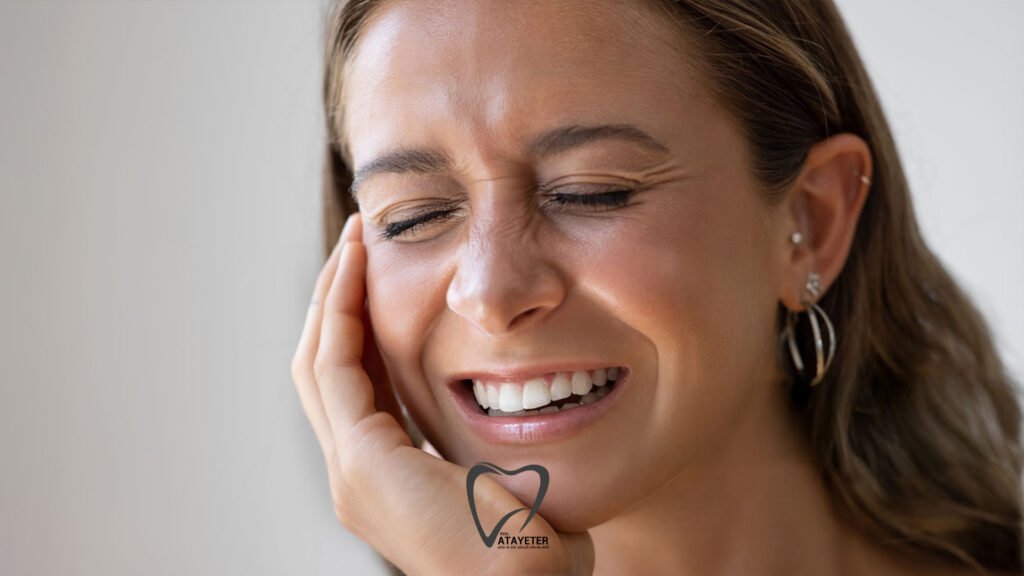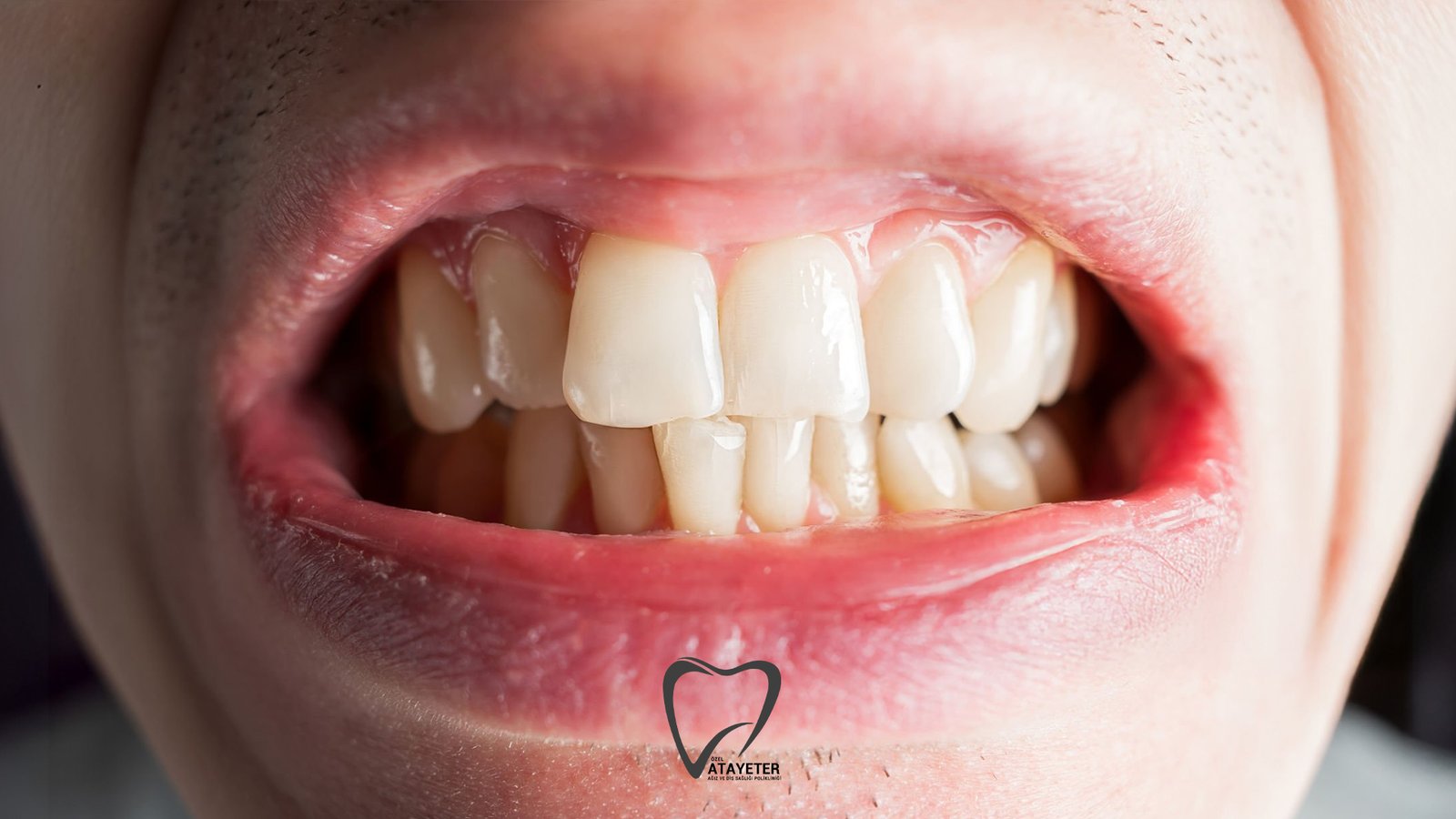What is Bruxism? How to Cure It
Many people today unconsciously clench or grind their teeth. These involuntary movements, which occur beyond a person’s control, especially during sleep, can negatively impact both dental health and overall quality of life over time. This condition, which occurs when teeth are pressed or rubbed together, can cause wear and tear on teeth, fatigue and pain in the jaw muscles, and even headaches in some people. In dentistry, this problem is called “bruxism.”
Because teeth grinding is often a habit that continues unconsciously, it can often go unnoticed for a long time unless it causes symptoms. Many people only realize they are clenching their teeth when they wake up in the morning and experience pain in the jaw or face, tooth sensitivity, or wear on the front surfaces of their teeth. In fact, this problem doesn’t just affect the teeth; over time, it can cause problems with the jaw joints, muscle tension, and even poor sleep quality.
Teeth grinding is considered a serious condition that can affect not only dental health but also a person’s daily life and overall health. Noticing and taking the necessary precautions is of great importance in preventing more serious dental and jaw problems in the future.
What is Bruxism?
It’s defined as the involuntary clenching or grinding of one’s teeth, and it’s a condition that often goes unnoticed. This habit can occur both during the day while awake (awake bruxism) and at night while sleeping (sleep bruxism). Teeth grinding, particularly at night, is more subtle and difficult to detect because it occurs outside the individual’s control. A person is often made aware of the condition by experiencing fatigue and pain in the jaw or face upon waking in the morning.

Teeth grinding isn’t just limited to pressing or rubbing teeth together. It’s also a problem that can lead to excessive tension in the jaw muscles, increased stress on the jaw joints, and, over time, serious deterioration of the tooth structure. This condition can cause problems such as cracking, breaking, abrasion, or sensitivity in teeth, as well as symptoms such as clicking in the jaw joint, headaches, and neck pain.
This condition, especially when it persists unnoticed for long periods, affects not only dental health but also a person’s quality of life. The negative effects of teeth grinding include a feeling of tension in the jaw and facial muscles in the morning, poor sleep quality, discomfort with daily activities, and increased stress.
Causes of Teeth Grinding at Night
There’s no single cause of teeth grinding. Many different factors can lead a person to develop a habit of clenching or grinding their teeth. Here are the most common causes:
Stress and Anxiety
The most significant cause is known to be stress. The hectic pace of daily life, work and family problems, and psychological pressures can all lead to teeth clenching without even realizing it. This is particularly common in people who are anxious, tense, or perfectionists.
Sleep Disorders
Sleep disturbances (such as sleep apnea) can trigger teeth grinding. Clenching is more common in people with sleep disorders.
Tooth and Jaw Structure Problems
Malocclusion of teeth, jaw joint problems or irregularities in the teeth may lead to teeth clenching.
Neurological and Genetic Factors
Some research suggests that bruxism may be linked to genetic predisposition. There are also studies linking it to neurological diseases such as Parkinson’s.
Drug and Substance Use
Some antidepressants, caffeine, alcohol and cigarette consumption also increase bruxism.

Symptoms of Bruxism
Bruxism isn’t always easy to spot, as many people experience this habit, especially during sleep. However, some symptoms may indicate the presence of teeth clenching and grinding:
Morning pain or fatigue in the jaw and facial muscles
Severe headaches, especially in the temples
Abrasion, flattening, or cracks in teeth
Sensitivity to hot and cold foods
Noise, locking, or strain in the jaw joints
Teeth grinding during sleep (often noticed by a partner)
Muscle tension in the neck and shoulders
These symptoms should not be ignored If continued, bruxism can cause serious damage to both teeth and jaw joints over time.
Health Problems Bruxism Can Cause
If bruxism goes untreated for a long time, it can negatively affect not only the teeth but also the jaw joints and overall quality of life. Some of the problems this condition can cause are:
Teeth Wear and Cracks: Constant grinding of teeth against each other can cause thinning of tooth enamel and the formation of small cracks. Over time, this condition increases tooth sensitivity and can cause aesthetic problems.
Temperature Joint Strain (TMJ Problems): Bruxism puts excessive stress on the jaw joints. This can lead to problems such as locking of the jaw, clicking during movement, or limited jaw movement.
Pain in the facial and jaw muscles: Constant contraction and tension cause pain and tenderness in the jaw and face. Sometimes these pains can be so bothersome that they make daily activities difficult.
Head and neck pain: Bruxism can cause severe, migraine-like pain in the head and neck area, especially in the morning. This can leave a person feeling tired and tense throughout the day.
Tooth loss and further problems: Long-term, uncontrolled bruxism can cause loose teeth and, in some cases, permanent loss. Additionally, gum health can also be negatively affected.

Bruxism Treatment
Bruxism treatment is a process that cannot be resolved with a single method and must be planned considering the individual’s lifestyle, stress level, and dental structure. Multiple approaches are often used simultaneously, including special trays that protect teeth while sleeping, exercises and hot and cold applications that relax jaw muscles, and muscle relaxants or Botox injections for severe muscle contractions. Stress management is also crucial; meditation, breathing exercises, yoga, or psychological support can help reduce the triggers of bruxism.
If bruxism has caused tooth wear or malocclusion, restorative dental treatments such as fillings and crowns can both protect teeth and restore them to their former aesthetic appearance. In short, dealing with bruxism requires patience and a holistic approach, but with the right methods, it’s possible to protect both your jaw health and your quality of life.







Comments are closed